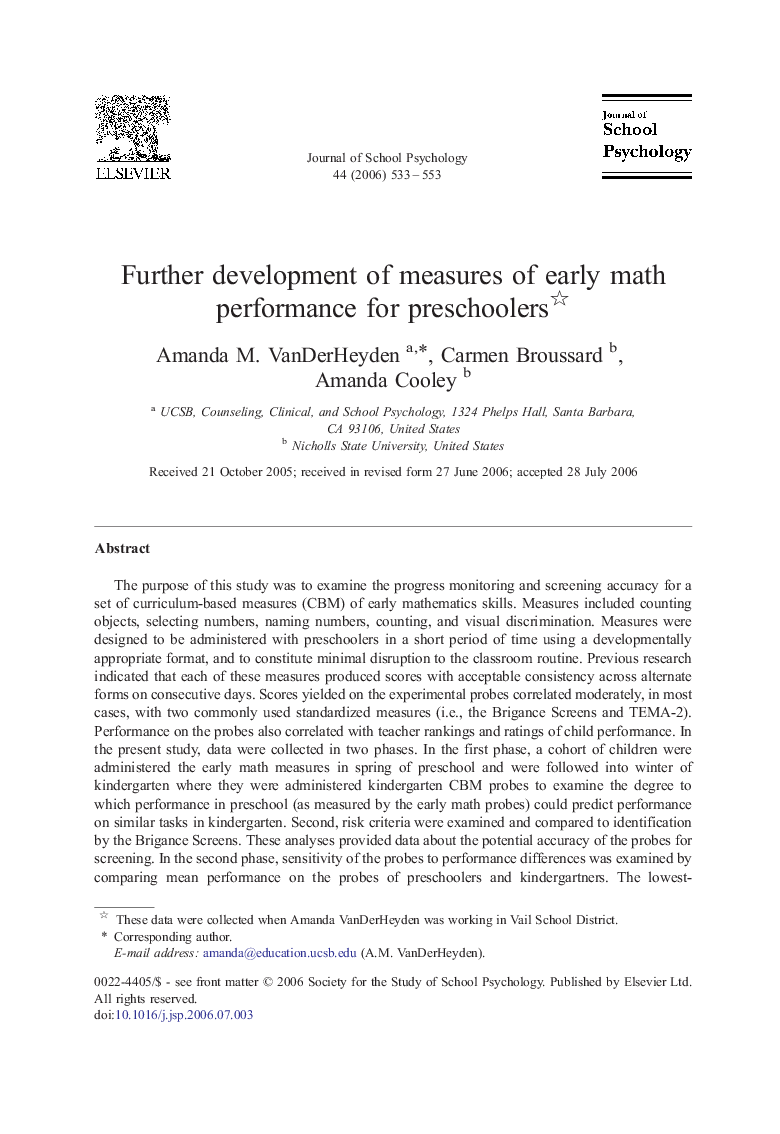| Article ID | Journal | Published Year | Pages | File Type |
|---|---|---|---|---|
| 363842 | Journal of School Psychology | 2006 | 21 Pages |
The purpose of this study was to examine the progress monitoring and screening accuracy for a set of curriculum-based measures (CBM) of early mathematics skills. Measures included counting objects, selecting numbers, naming numbers, counting, and visual discrimination. Measures were designed to be administered with preschoolers in a short period of time using a developmentally appropriate format, and to constitute minimal disruption to the classroom routine. Previous research indicated that each of these measures produced scores with acceptable consistency across alternate forms on consecutive days. Scores yielded on the experimental probes correlated moderately, in most cases, with two commonly used standardized measures (i.e., the Brigance Screens and TEMA-2). Performance on the probes also correlated with teacher rankings and ratings of child performance. In the present study, data were collected in two phases. In the first phase, a cohort of children were administered the early math measures in spring of preschool and were followed into winter of kindergarten where they were administered kindergarten CBM probes to examine the degree to which performance in preschool (as measured by the early math probes) could predict performance on similar tasks in kindergarten. Second, risk criteria were examined and compared to identification by the Brigance Screens. These analyses provided data about the potential accuracy of the probes for screening. In the second phase, sensitivity of the probes to performance differences was examined by comparing mean performance on the probes of preschoolers and kindergartners. The lowest-performing children were provided with seven intervention sessions to examine the degree to which probes could detect growth resulting from intervention. Directions for future research and implications for practice are discussed.
